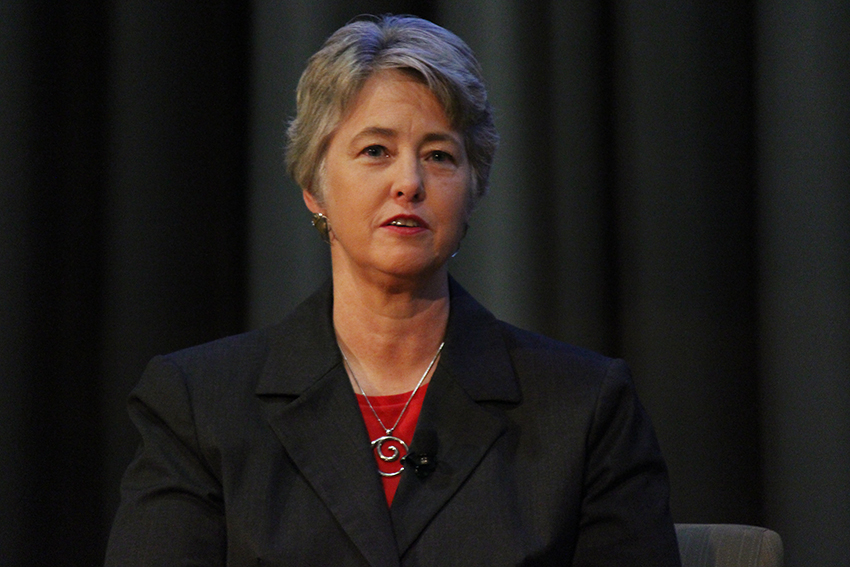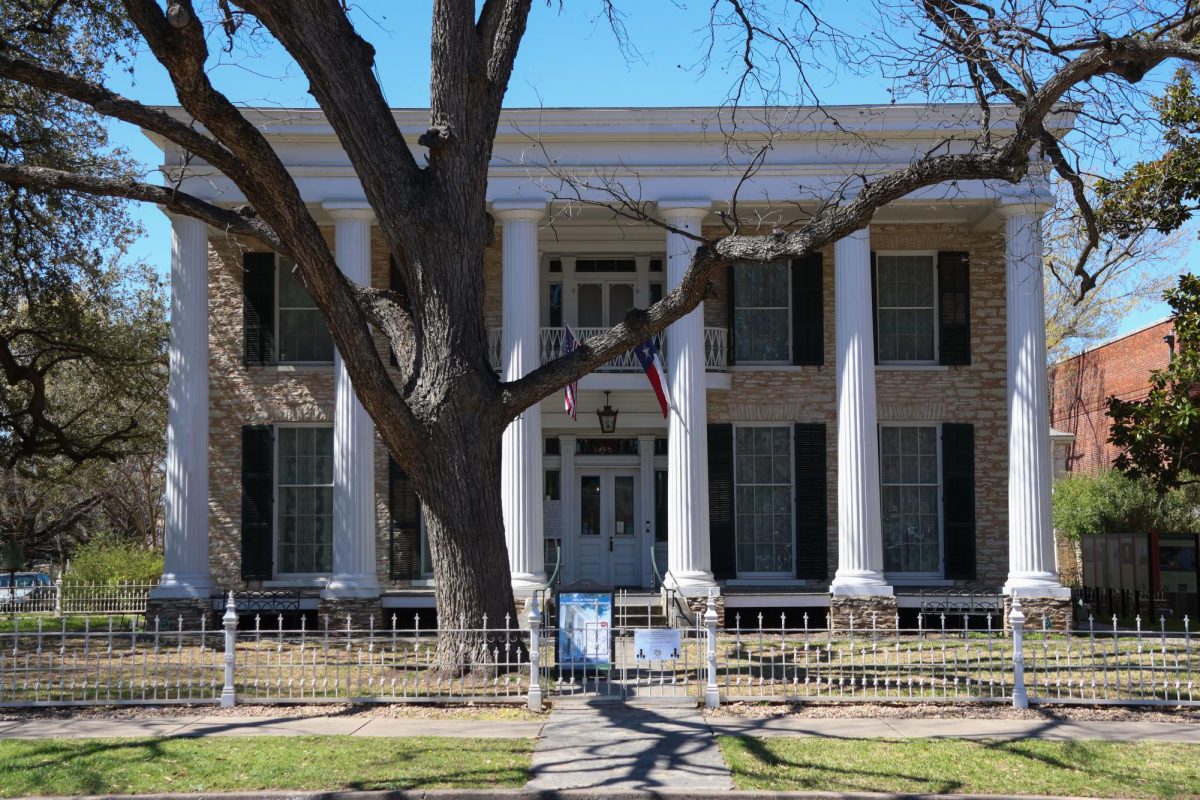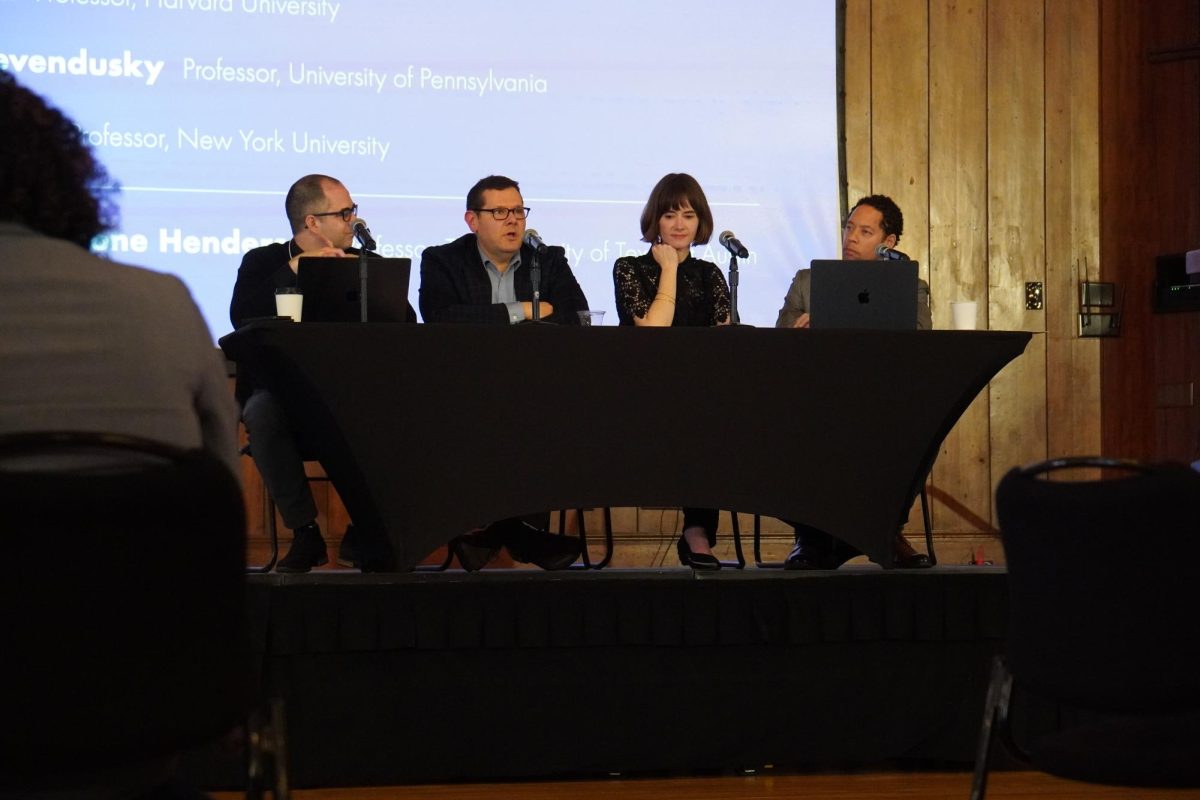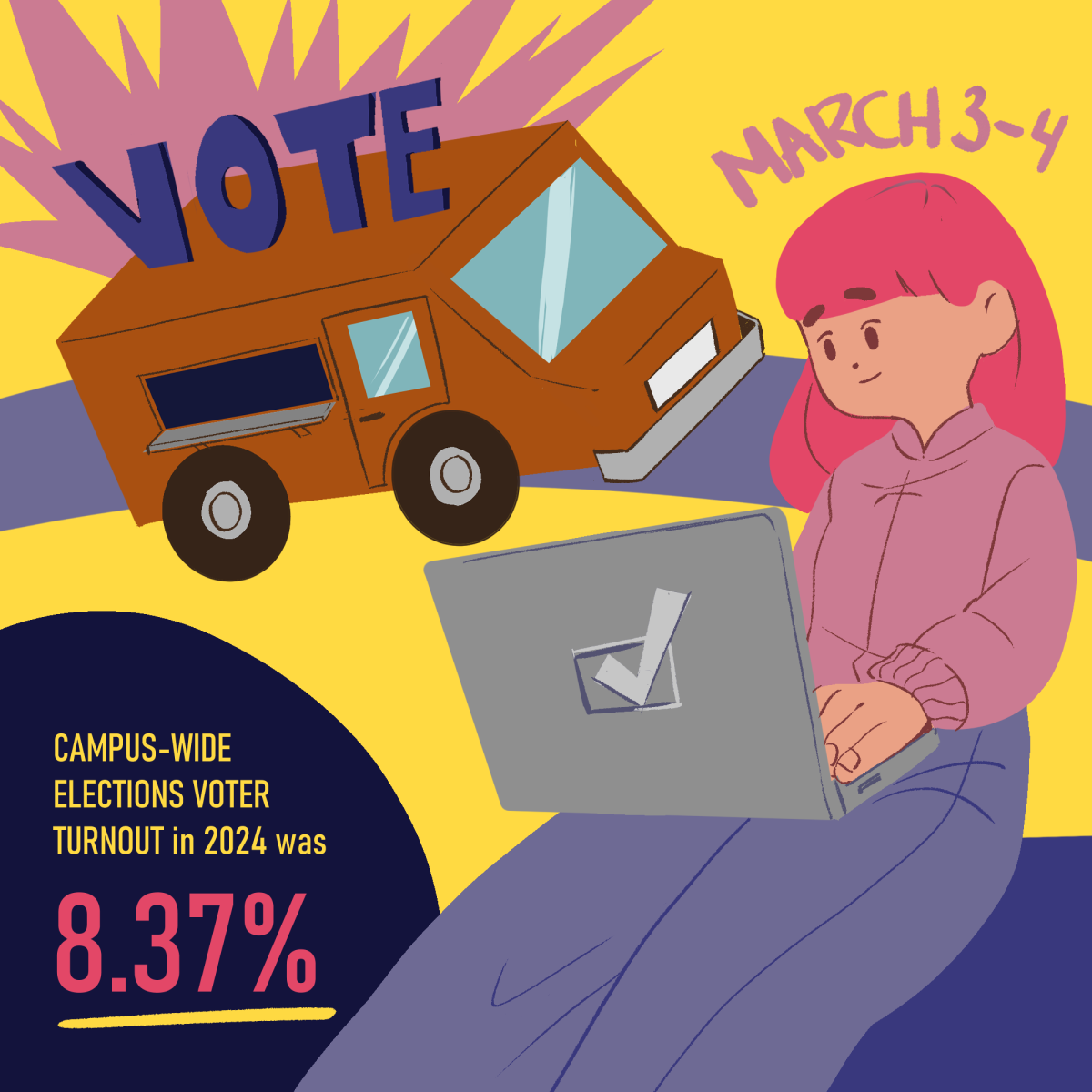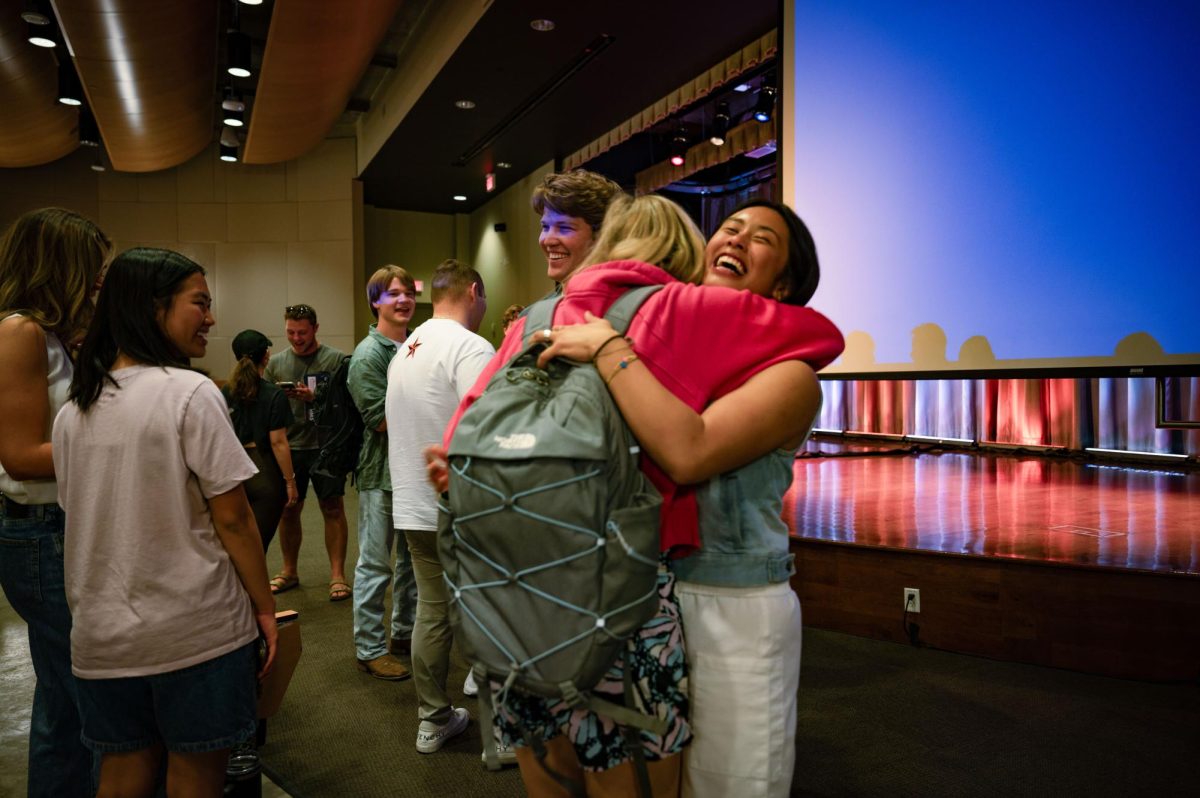“I had to figure out how to not make ‘lesbian’ my last name,” said Annise Parker, the former mayor of Houston, in a speech to UT students Thursday night at the SAC Auditorium.
Parker, the first openly lesbian mayor of a major U.S. city, reflected on her 45-year record of LGBT activism and politics, touching on her successes and failures.
“All this attention could have been a distraction,” said Parker, referring to the heightened attention she received in 2009 upon winning the mayoral election. “But I viewed it as an opportunity to take it, pivot and talk about the city I was leading.”
Coming out as a lesbian in the early 1970s was a different affair back then, Parker said, and despite it being difficult, she said she had to learn how to be comfortable with herself.
“There was no pubic discussion, no role models,” Parker said. “The topic of conversation then was one of safety and how we could keep ourselves from harassment and from being fired.”
Parker was mayor in 2015, when 60 percent of Harris County residents rejected the Houston Equal Rights Ordinance, a measure that proposed outlawing discrimination on the basis of gender identity, sexual orientation and race.
“I couldn’t get the nondiscrimination ordinance passed for Houston,” Parker said, dubbing it one of her biggest disappointments to date. “I also did it as mayor of Houston, not an LGBT activist. And I did it because it was important to Houston and for my constituents.”
Victor Fu and Alexander Mutammara, two of Parker’s former constituents, said they were at the event to show their support.
“I feel, as allies of the LGBT community, it’s pretty important for us to be here,” chemistry freshman Mutammara said. “Parker is a really huge figure fighting for those kinds of rights in that field.”
Fu, a chemical engineering freshman, agreed with Mutammara and said he was curious to learn about Parker’s upcoming political plans.
“Parker has been a trailblazer for LGBT communities,” Fu said. “I want to hear about the things she wants to do in the future.”
When asked about plans for the LGBT community, Parker said a possible Supreme Court involvement could ultimately end up deciding the community’s future.
“We won this war, we may just lose a few more battles,” Parker said. “Even if we arrive to full equal participation in American society, we have the whole rest of the world to bring along with us as well. So, we can’t stop there.”
Parker’s speech, organized by the Pride Policy Alliance, Queer Graduate Student Alliance and UT’s Gender and Sexuality Center, ended with defining an LGBT agenda.
“We want to walk down any street in America without being assaulted,” Parker said. “We want to serve our country open and honorably. We want to pay taxes to the country that doesn’t always acknowledge. And we want to adopt children and raise them with love. That is the gay, lesbian, bisexual, transgender agenda.”
Even with wins at the Supreme Court on same-sex marriage and advancements on state legislation, Parker said the LGBT agenda still has issues and policy areas it still needs to address.
“When you stop counting the milestones, you’ve arrived at your destination,” Parker said. “And for the LGBT community, we still have a long way to go.”

